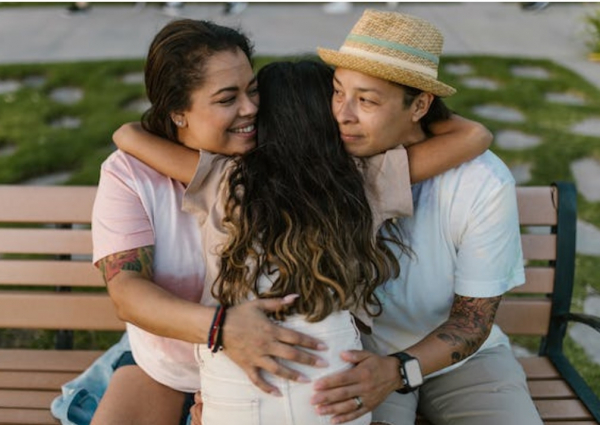
The recent Club Q shooting that left five people dead and 25 others wounded has brought terror anew to a community that has long been subjected to harm and discrimination.
The armed attack is just one of three gun-related assaults in two weeks, with the latest one involving a Walmart supervisor who gunned down six of his fellow employees and a University of Virginia student who shot and killed three football team members while wounding three others.
With such violence ending up with dead people, and with a particular focus on the Club Q mass shooting, it's not surprising that many LGBTQ+ individuals and their loved ones would feel threatened these days.
The uncertainty with their safety as they go to places like Club Q, where they are supposedly in the presence of people who would never think of hurting them, getting the slightest bit of assurance is one thing they deserve right now.
Here are 10 ways how LGBTQ+ Christians and their families could help protect themselves from harm:
-
Observe increased awareness of where you are. While a determined attacker could come from anywhere, it's still better to know where you are at any given time. It could be in an alley with few people or a room with unknown individuals. The key is always to observe the surroundings and the behavior of people surrounding you to spot signs of a possible attack, like a person showing uneasiness, distress, or hostility toward you.
-
Do not engage with a hostile person. You may think the best way to respond to a hostile person is to talk back. Unless the person becomes physically aggressive and you're left with no choice but to defend yourself, you should take the high road and distance yourself from the individual. If the person hurls insults and other verbal attacks, try de-escalating the tension by walking away.
-
Walk with a buddy or in a group. They say there is safety in numbers, and in the case of a potentially violent attack against you, that could probably be the case. Being with another person (a friend or colleague) or a group is one way of making someone with violent intent think twice about actually hurting you.
-
No matter how nice they seem, don't get in a stranger's car. Many violent criminals have amiable personalities, which they use to lure unsuspecting victims. As such, make sure not to hop into a "friendly" person's car because they offered to take you home. Instead, call a cab or have your relative or trusted friend pick you up.
-
Drink moderately and in the presence of someone you know and trust. Just because bad things are happening in places that LGBTQ+ people like you frequent doesn't mean you have to stop enjoying fun times with your friends. If you must drink, then be sure to do so in moderation and only when you are with a trusted buddy. If you're the designated driver, drink only within the legal limits or forego the alcohol altogether for safety measures.
-
Only meet people in a public place, and tell someone you know details of it. Many attackers would strike in areas that are not well-lit and secluded, so be sure to avoid putting yourself in a position where the person would be encouraged to harm you. Make sure to tell a trusted friend or someone in your house who you are going to meet, where, and what time you're supposed to come home from the meeting, so they'll know to call the police when you don't show up by then. Conversely, make sure to take note of the details about the person your LGBTQ son, daughter, or sibling told you about. It could come in handy if your loved one goes missing or is attacked.
-
Before agreeing to meet someone, do some digging first. Do not just agree to meet someone you only know online. Instead, do some research first to see if the person has some red flags enough to cancel the supposed meet-up. If possible, convince the person to have a video call with you. If the individual on the other end is a phony or shady character, this would be enough to put off that person.
-
Bail out if the person you're with is making you uneasy. Whether it's someone you agreed to meet after a few hours of chatting online or suddenly bumped into inside a bar, the idea is to politely tell the person you're leaving to go home or be somewhere else. You're not obligated to stay with that person if they are already acting all weird and making you uncomfortable.
-
Act when you witness someone being attacked. You can call 911 from a safe distance, alert a police officer nearby, or just shout and make the attacker know that someone is witnessing everything. The person being attacked could be a fellow LGBTQ+ or even a straight person, but regardless of gender, remember that you have to do something to stop the assault. Just think if you're on the receiving end of the assault and the person who could've done something chose not to act.
-
Invest in a personal protective device. It can be as simple as a pepper spray or "rape whistle" or a little more pricey like a taser gun. The point is that you'll never know when you will need to defend yourself, and unless you know martial arts, having an unsophisticated device to ward off an attacker could pay off.
Related Article: Top Biblical Verses About End of Days and How You Should Prepare for It

















